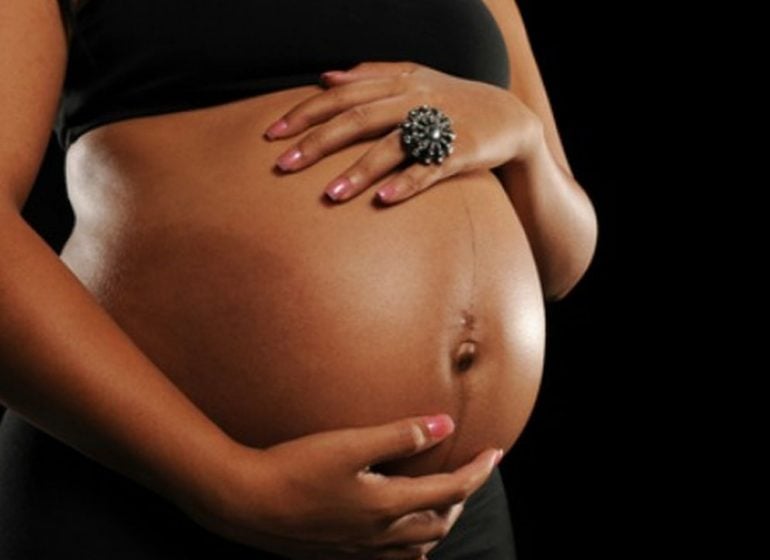Do you get baby fever when you see twins? You are not alone. However, if you would love to have twins, knowing the causes of a multiple pregnancy is a good place to start.
Zainab Abu, a mother of 12, recently gave birth to a set of quadruplets!
According to the a Nigerian news platfrom, she had no idea it would be a multiple pregnancy because she never went for antenatal or any medical check-up.
Thankfully, she and her babies are fine. Find out all you need to know about the causes of multiple pregnancy, symptoms, precautions and management.
What are the causes of a multiple pregnancy?
If you’re wondering why Zainab didn’t go for any antenatal or medical check-up, you’re not alone.
According to her, it was due to the distance between her community and the next health facility. To get there, you’d have to cross a river with a canoe and then take a bike to cover the rest of the distance. As a result, Zainab has been giving birth at home, and the quadruplets are not her first multiple birth.
The reason women like Zainab give birth to more than one baby can be put down to the following natural causes:
- Heredity: A woman who has a family history of multiple pregnancies has a higher chance of giving birth to more than one baby at once.
- Older age: You have a greater chance of multiple pregnancies if you’re over 30 years of age. Little wonder you hear of older women who struggled with infertility giving birth to twins or more.
- Multiple pregnancy history: Chances are you’ll give birth to more than one child if it has happened before.
There are other factors are based on technology which include:
- Medication: Medication can be given to stimulate ovulation or produce many eggs for fertilization, resulting in multiple births in the end.
- Vitro fertilization: To help couples conceive, they can be assisted with reproductive technologies. Ovulation is stimulated to produce multiple eggs, and when they’re fertilised, they are returned to the uterus to develop.
How do multiple pregnancies occur?
When more than one egg is fertilised and deposited in the uterus, multiple pregnancies happen. This process can produce girls or boys, or a mixture of both, referred to as the fraternal twins or multiples. Fraternal siblings are conceived at the same time and they can look alike, just the way some siblings do. However, when one egg is fertilised and divides into two or more embryos, this is known as identical twinning. This kind of multiple births produces either all girls or all boys who are identical in their genes and look alike so much that parents and family members struggle to tell each one apart.
Symptoms of multiple pregnancies
Each woman may experience these symptoms differently, but you can look out for the following symptoms in general:
- Increased morning sickness
- Increased appetite
- Larger uterus than expected
- Excessive weight gain especially in the early days of pregnancy
- Fetal movements in different parts of the abdomen at the same time
How to manage multiple pregnancies.
In choosing specific management for your multiple pregnancy, your doctor will consider the following:
- Your opinion and preferences
- Medical history and overall health
- Tolerance for specific medications and procedures
- Expectations for the course of the pregnancy
On your part, management of a multiple pregnancy may include the following:
- Increased diet:
You will need to take in more calories than a woman carrying a single pregnancy. This is because two or more fetuses need more iron, protein and other necessary nutrients. You may need to put on more weight than you would have to comfortably carry the fetuses until full-term.
- Frequent hospital visits:
You may have to go for prenatal appointments more often for the doctor to check for complications and monitor weight gain.
- See a specialist:
It may be necessary for you to be referred to a maternal-fetal medicine specialist called a perinatologist. This specialist will test you specially and evaluate your ultrasound.
- More rest:
To manage a multiple pregnancy you may have to submit yourself to increased bed rest. It may be at home or in the hospital and it usually starts at the beginning of the second trimester, especially if you’re carrying more than two fetuses.
- Testing the fetuses:
The fetuses may require more testing to monitor their health, especially if there has been a complication.
How to take care of your babies after birth
Most multiple pregnancy births usually happen a bit earlier than expected, which means they come out small and unable to feed on their own just yet. In this case, they will need to remain in the special care nursery in the hospital until they can feed, grow and stay warm. However, if your babies were born full-term, your time in the special care nursery will be short.
So what will life look like after leaving the hospital? Breastfeeding your twins or triplets (or quadruplets!) is a huge task but one that is possible, especially with the help of a lactation specialist, who can teach you how to increase your milk supply and how to breastfeed them individually and together. Overall, you will need help from family and friends, who can take over house chores, allowing you the time to get to know your babies more and to find a routine that works.
This article was first published on AfricaParent.com
Copyright 2024 TheCable. All rights reserved. This material, and other digital content on this website, may not be reproduced, published, broadcast, rewritten or redistributed in whole or in part without prior express written permission from TheCable.
Follow us on twitter @Thecablestyle

